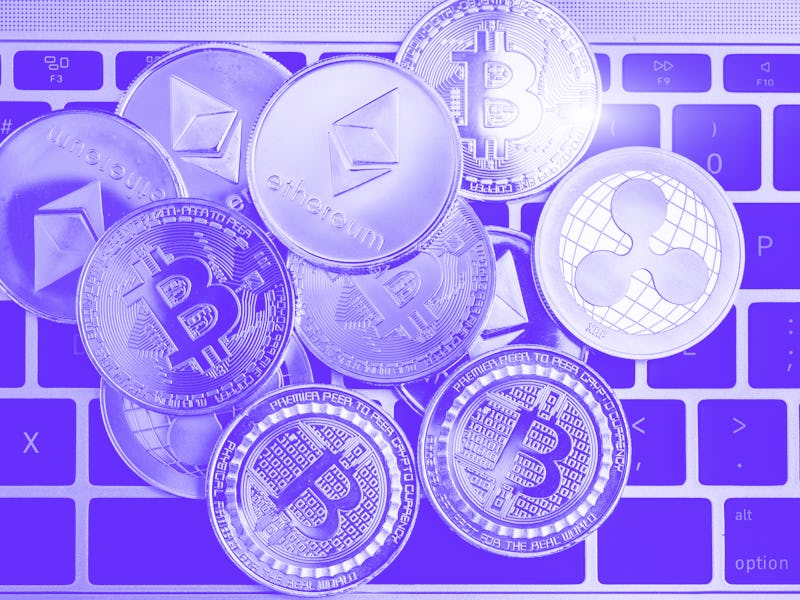Culture
Pornhub now only accepts crypto, leaving sex workers with the bill
The porn platform’s changes were too little too late for popular payment processors and probably too fast for amateur porn performers to adjust.

Cryptocurrency is Pornhub’s last port in a storm now that Visa and Mastercard have abandoned it. As of Monday, the second most popular pornography platform will only accept cryptocurrencies going forward, according to Decrypt. Crypto is far from new to the platform, but its exclusivity will have far-reaching effects on the sex workers who make its business possible.
A completely different site — In roughly a week, the Pornhub experience has drastically changed. Backlash began brewing from a New York Times Opinion piece showing how the platform has failed sexual assault and exploitation victims, despite Pornhub’s stance that it uncovers a fraction of this kind of content that Facebook does.
The high-profile piece combined with ongoing protests in Canada brought the platform’s failures to the attention of Visa and Mastercard. Pornhub scrambled to do damage control, mainly by no longer allowing downloads, axing its Wild West-style upload policy, and adding another layer of moderation.
Blocked payments — As this clearly wasn't enough, after a short investigation, Visa and Mastercard blocked payments to Pornhub. Discover followed suit on Friday, and American Express has long prohibited the use of its cards on adult websites. The platform has been aggressively, retroactively applying its verified uploads-only policy (with an unnecessary side of sass), roughly having its content in the process.
It’s unclear if any groveling was done over the past few days, but if so, it was unsuccessful enough for cryptocurrency to be the only payment option this week. When PayPal jumped ship a year ago, Pornhub shored itself up with various cryptocurrencies, from Bitcoin to Verge, so the transition has likely been seamless... at least, for the company.
What does this mean for everyone else? — Pornhub mainly thrives off of advertising, so this tumultuous week has mostly affected everyone else who interacts with the site. NBC News and Decrypt talked to sex workers who universally agreed that Visa, Mastercard, and Discover’s response to Pornhub’s worst kept secret mainly hurts them.
The massive video takedown occurring right now is catching some offending content, but also doubtless scores of amateur videos from consenting adults, including from people who have turned to the site for income during the pandemic.
These performers now have to bank on regulars navigating cryptocurrency to provide tips and pay for premium services — if these performers were already verified users, that is. There’s potential for a sudden boom in crypto-adoption, which could be great for both industries, but this current class of sex workers didn’t sign up to be guinea pigs (and even if they did, not this kind). More likely, this will push people over to Xvideos, the somehow seedier, most popular porn platform in the world.
Long overdue, but rushed — Pornhub’s content policy changes have long been pushed for by professional sex workers, but though the shift has financial motivations, Pornhub playing the victim isn’t totally out of pocket. A statement from the company reads: “It is clear that Pornhub is being targeted not because of our policies and how we compare to our peers, but because we are an adult content platform.” This doesn’t absolve Pornhub of sex crime profiteering, but these major creditors shouldn’t get off the hook either.
Sarah T. Roberts, told NBC News that the current wagon circling of Pornhub is “strangely punitive and uniquely puritanical in an American way.” Roberts, a UCLA professor specializing in online content moderation, went on to say that activism around this illegal content is more motivating to these creditors to enact “no-tolerance policies that aren’t equally applied to other platforms or bad actors” like white supremacists on social media. “How long have [Visa, Mastercard, and Discover] been collecting fractional surcharges from pornography on the internet? Give me a break!”
Roberts, in agreement with sex workers, doesn’t think this financial vise actually does anything to curb the production or dissemination of child exploitation videos and images. In recent years, the U.S. has taken hard lines against sex trafficking and child exploitation, but the government and private companies’ enforcement of these policies has mostly destroyed numerous safe havens for sex workers. There’s a way to hold private companies accountable for their part in some of the most disturbing crimes in existence without treating consensual content with the same ire, and it doesn’t start with superficial, performative bans that hurt the very people who are the backbone of the industry.